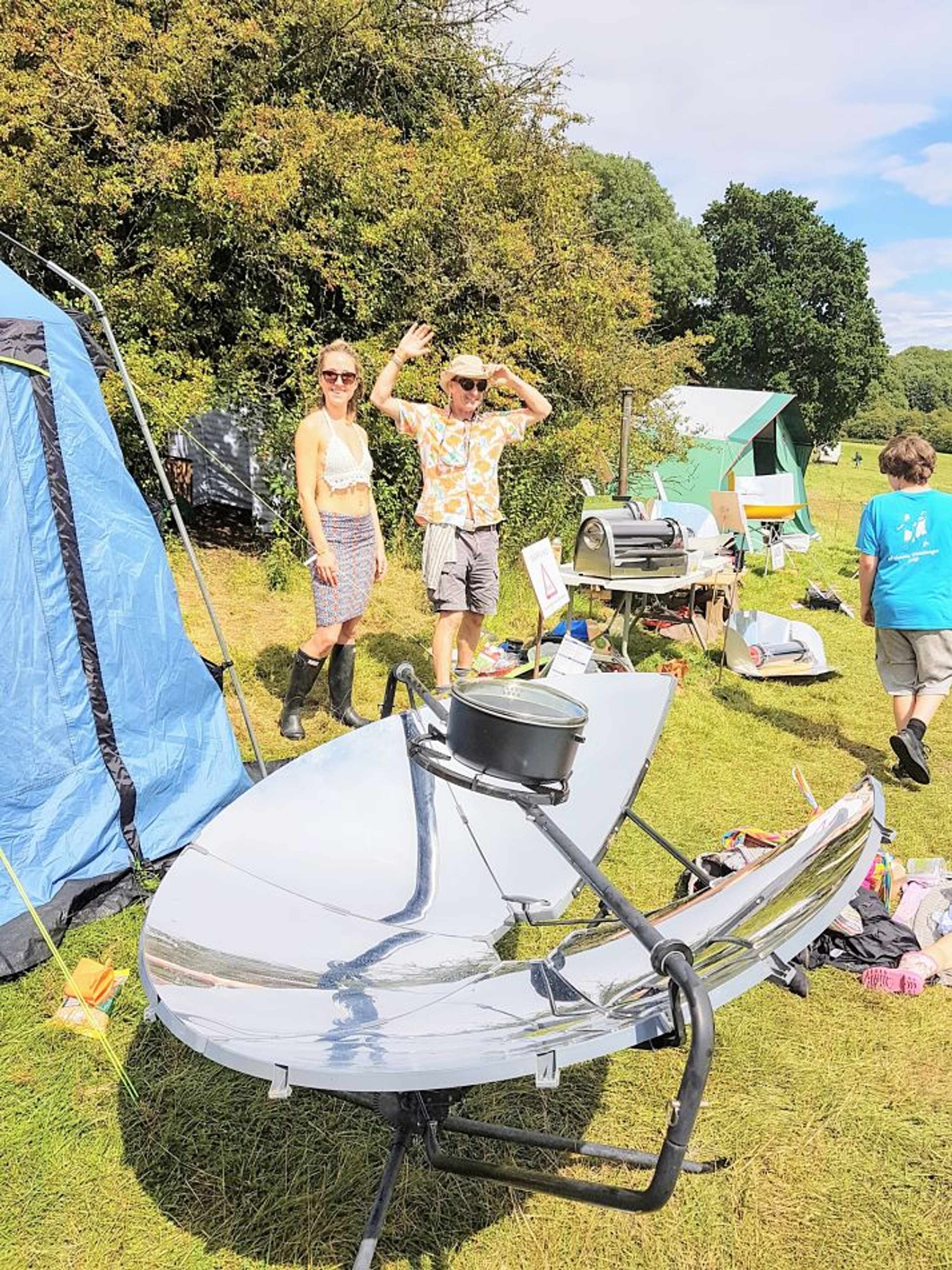Seriously Low impact Cooking - uses no fuel, creates no emissions and costs nothing
Seriously Low impact Cooking - uses no fuel, creates no emissions and costs nothing
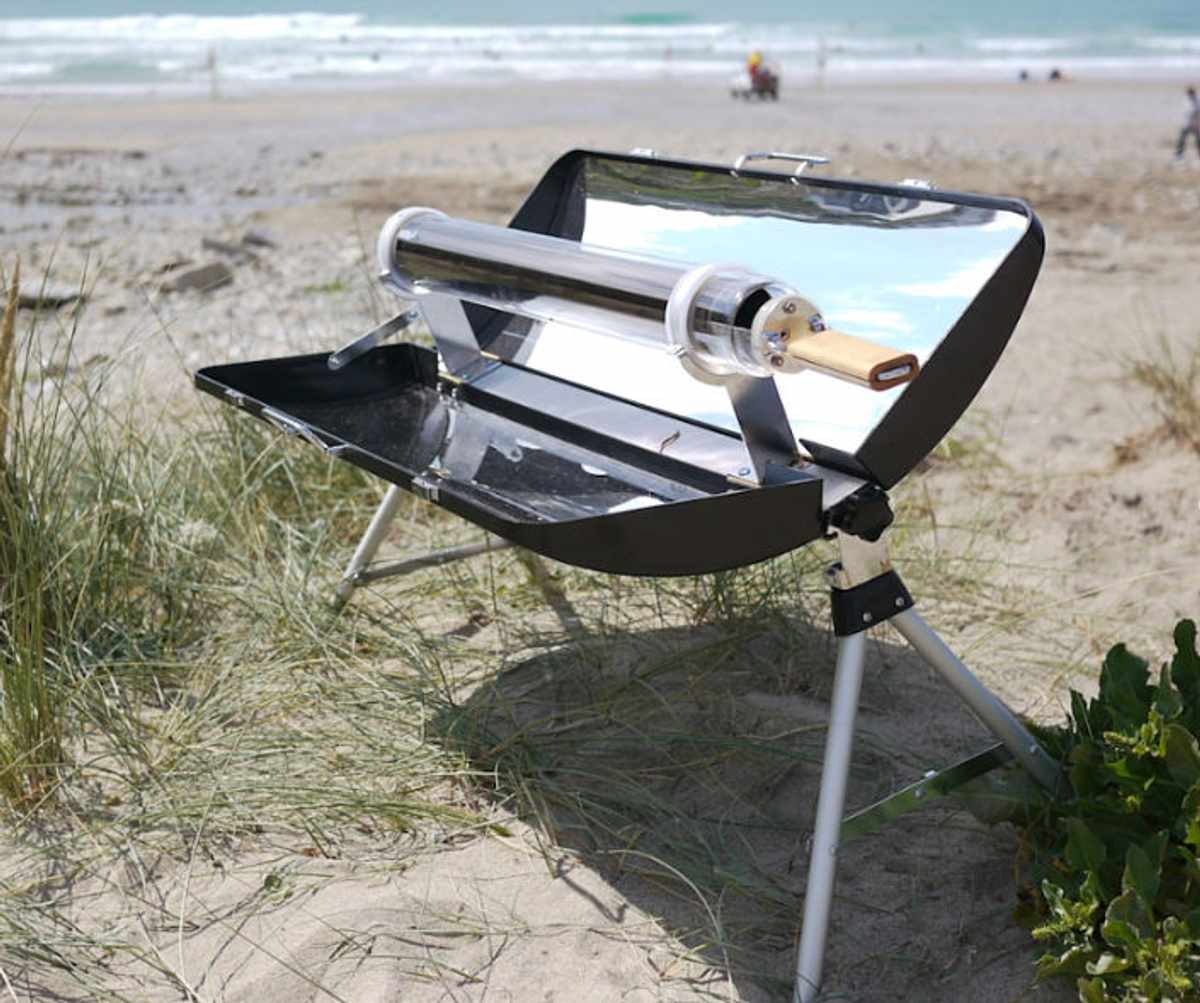
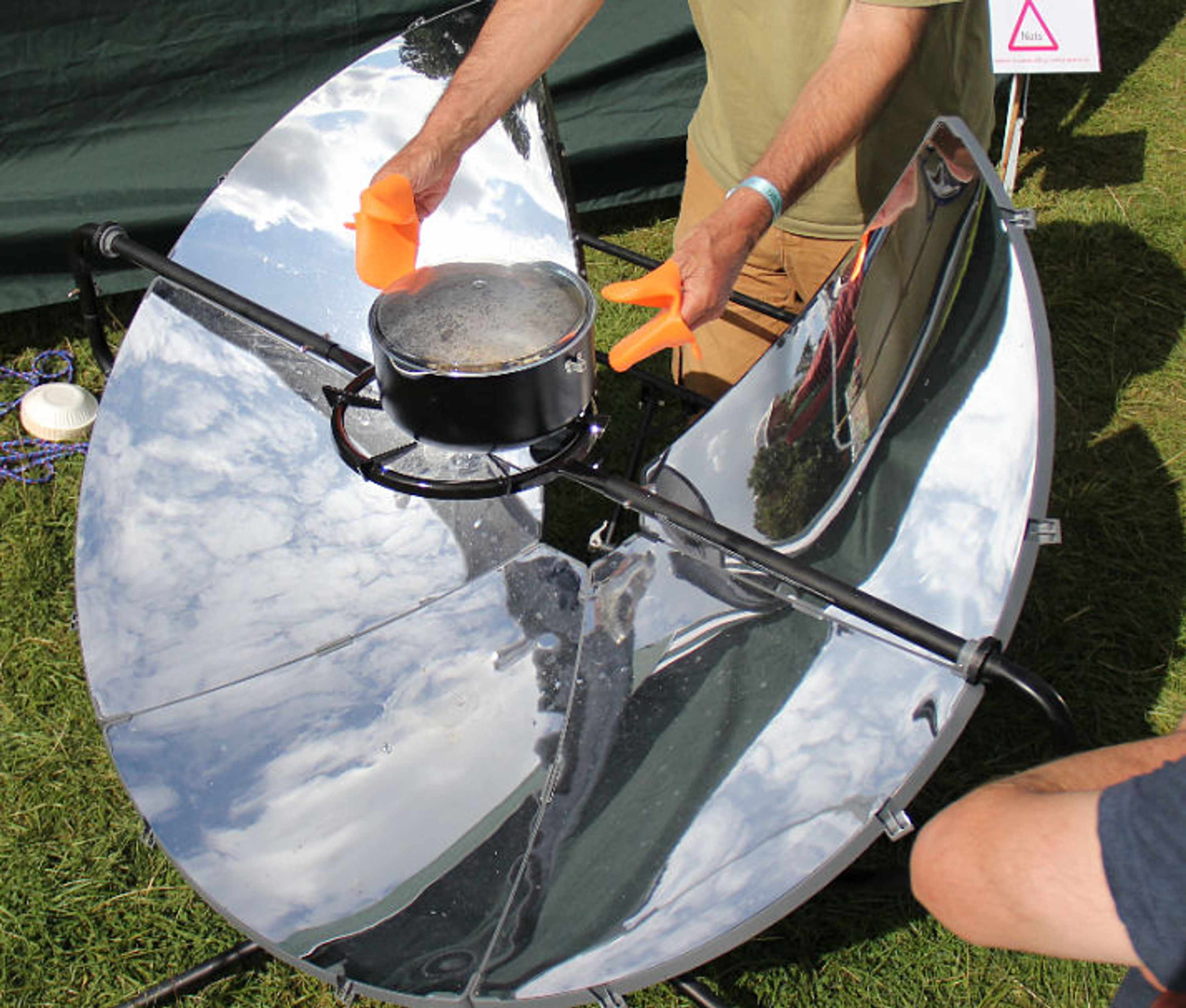 Parabolic solar cooker
Parabolic solar cooker
Cooking with the sun is easy, when you know how. Here at SLiCK we’ve been pioneering solar cooking in the UK. If you can do it here, you can do it anywhere!
The concept of solar cooking hasn't been around long, it’s still gaining traction. Everybody understands how fire heats food up. Cooking with mirrors? not so much.
How do we do it?
We’re cooking with sunlight. This means focussing light onto our pot using shiny reflectors. The pot needs to be black. For all solar cookers except the most powerful our pot needs to be inside a glass heat trap often called a ‘greenhouse’. Light hitting the black pot turns to heat that can’t escape the greenhouse fast enough - it gets steadily hotter. Its a similar process to your car dashboard getting hot in the sun. In good sun our hot pot will start to transfer heat to its contents, hitting cooking temperature.
How hot does it get?
Depends on a handful of factors: how sunny it is - we get about 150 sunny days in the UK per year (honestly!); Reflector size; how good is our heat trap? and of course how much food we’re cooking. Small food can get too hot, even burn. Large food takes time. Like in a regular kitchen you have to learn what’s needed for success. 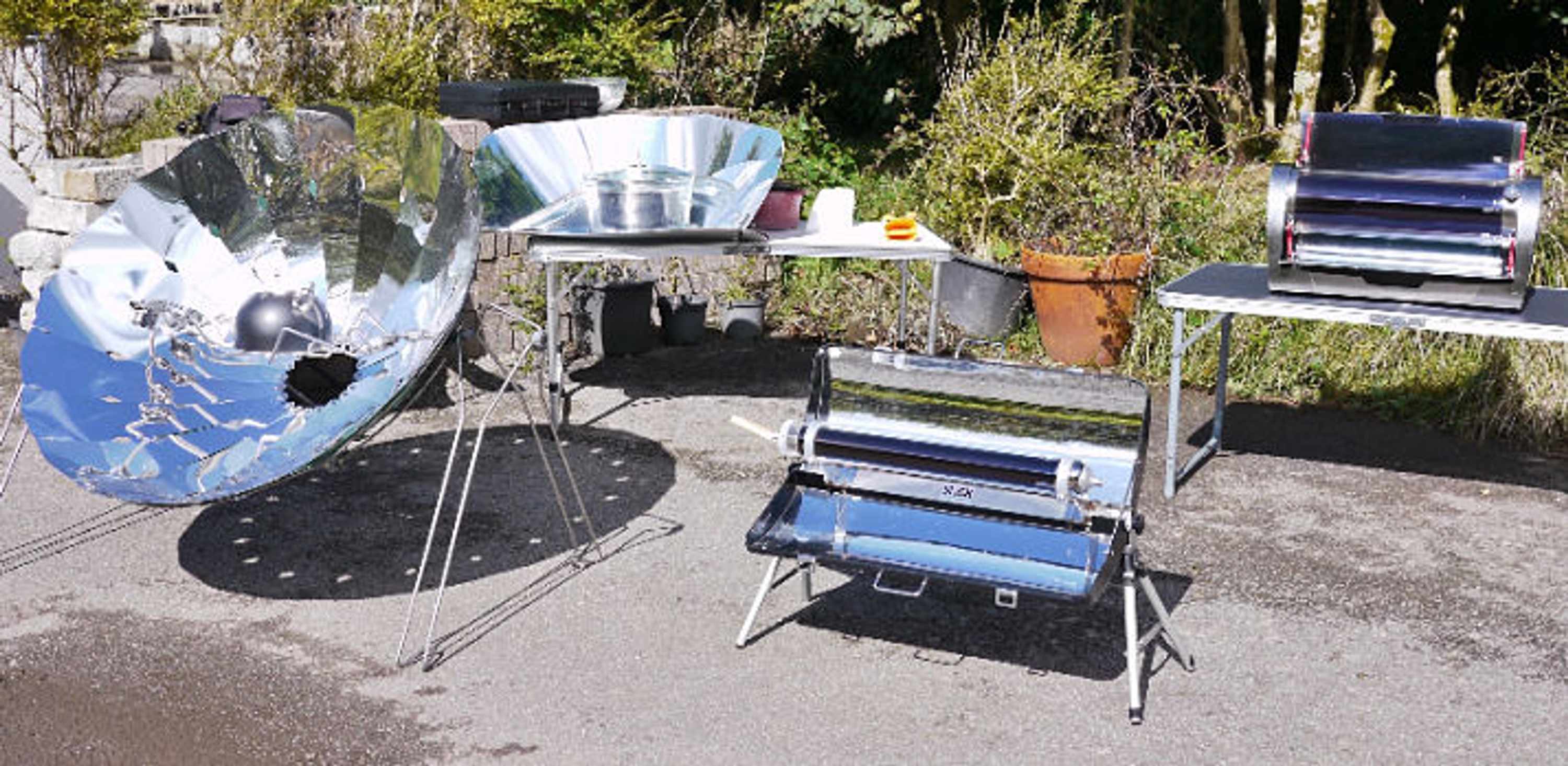 Menagerie of solar cookers
Menagerie of solar cookers
Which Solar cooker?
People start by making their own with variable results. A range of manufactured solar cookers from cheap to expensive is available to illustrate what’s out there.
Starting cheap. Panel reflectors, with a dark pot and a plastic oven bag are a good starting point. Not too powerful these will get a litre of soup boiling in two hours of good sun. DIY with card and foil. Panel Reflector example
Next up. Extend your solar season with a box cooker. Reflectors bounce light into a box via a glass lid. Good insulation keeps the heat for longer meaning part cloudy days work too. DIY Cardboard box, foil, up-cycled glass GSO 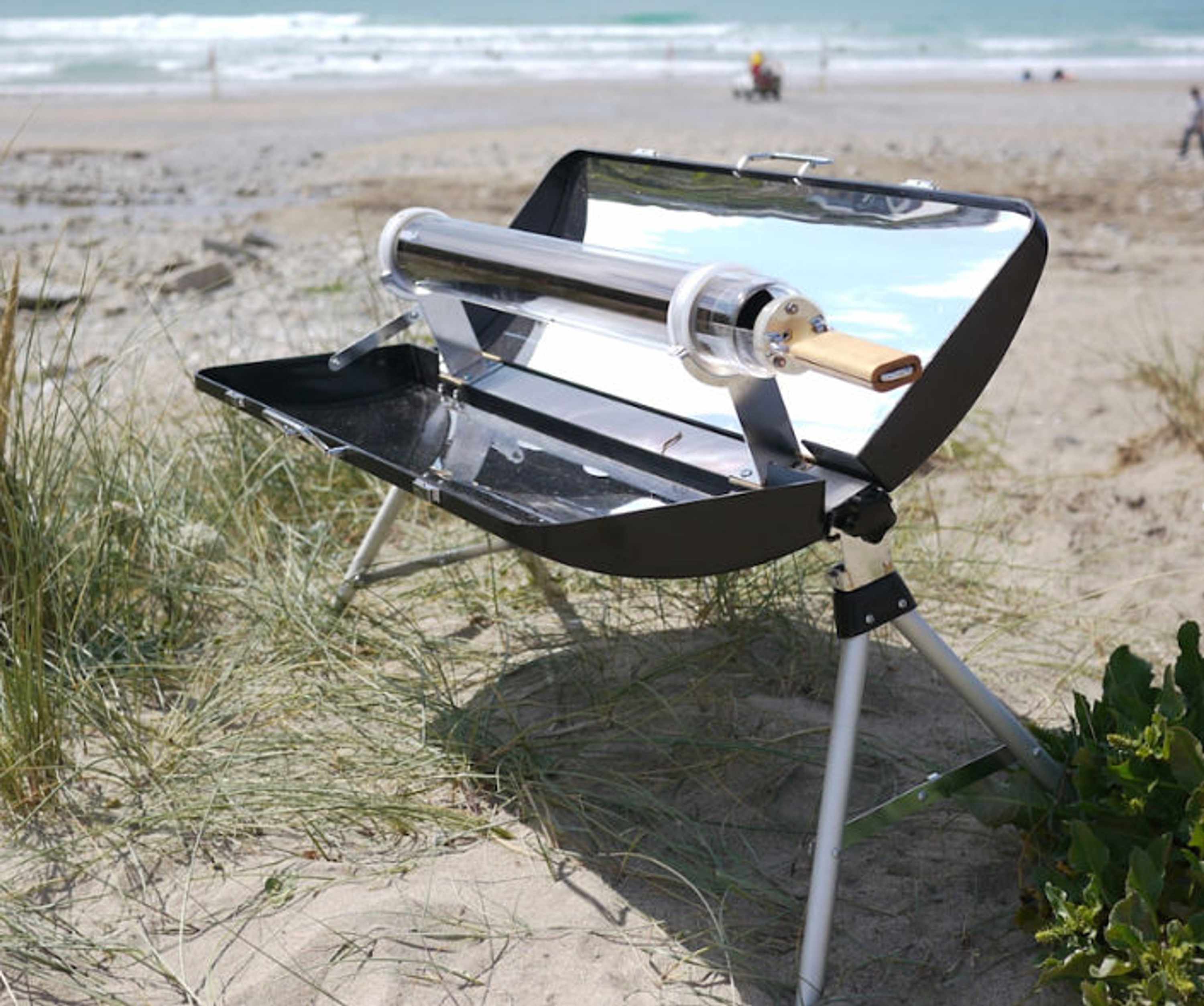 Vacuum tube solar cooker
Vacuum tube solar cooker
**You’re hooked - you need more power **
We recommend vacuum tube cookers for the UK. Basically a naked thermos flask with a light absorbing inner layer. Best for long foods with serious cooking temperatures possible - you can bake, boil or grill, most work under bright clouds. Often used with curved reflectors to get the max.
UK Bread baking in a tube cooker.
Going into space?
Meet the parabolic dish cooker. They look like a satellite dish and work by focussing light at the bottom of your pot allowing you direct access, chef style. Boiling, frying, toasting - it’s all possible if you have the space. DIY possible from old satellite dishes. The Solsource parabolic was developed for use on the Tibetan Plateau
The cookers types shown have pro and cons. Out on the alt.tech fringes there’s plenty of movement - this is still a young technology. California based Solar Cookers International (SCI) provide a great resource.
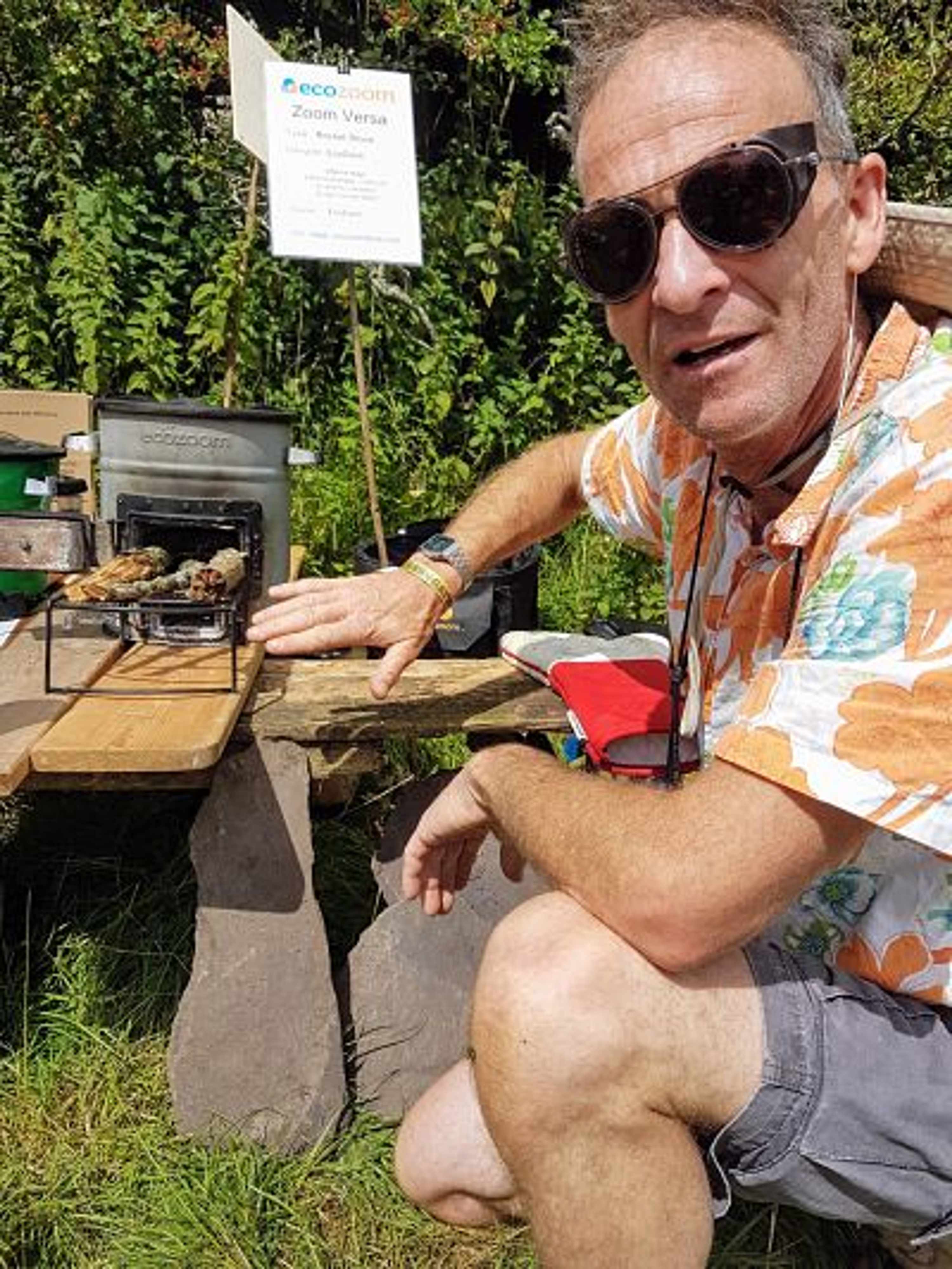 "Solar" Stewart
"Solar" Stewart
But why bother?
A good question. Most UK kitchens have fossil fuel energy delivered 24/7….flick a switch and you’re on. But solar uses no fuel, creates no emissions and costs nothing. We think most eco minded folks might take a look, even if we don't have the ideal climate. Great for off grid or camping - cook solar when you can, if you can.
Remember that across the world ancient forests are being cut for charcoal burning at crazy rates - mostly for cooking fuel. Solar cooking can slow this, but is mostly unknown and unrecognised as a serious option by the big players such as the UN. Our goal at SLiCK is to get the word out here in the UK and we’re preparing for the 2018 season now.
Author: Stewart MacLachlan
Stewart set up SLiCK (Seriously Low impact Cooking) to raise awareness of low energy and zero emission cooking alternatives in the UK. Join the lively discussion at the Facebook group Solar Cooking UK
EcoHustler Met Solar Stewart at The Green Gathering
